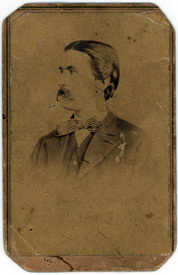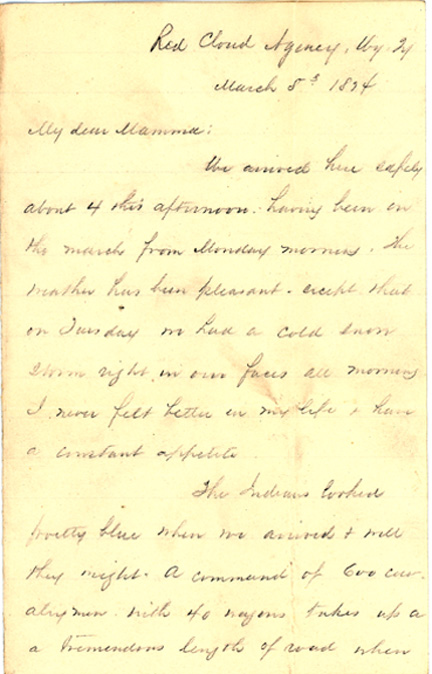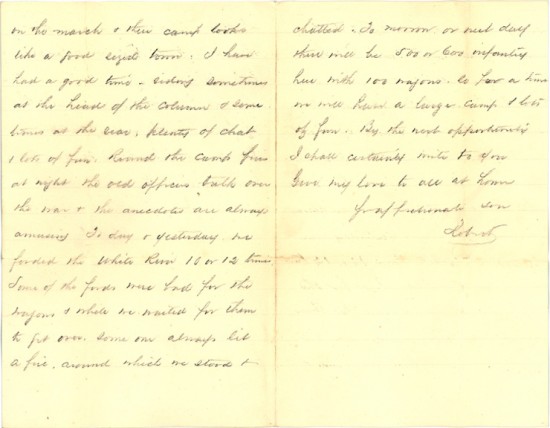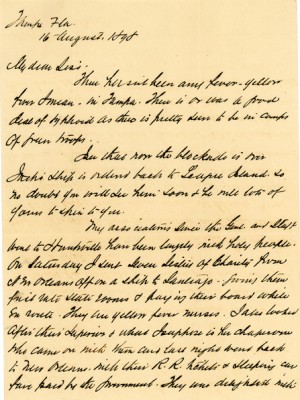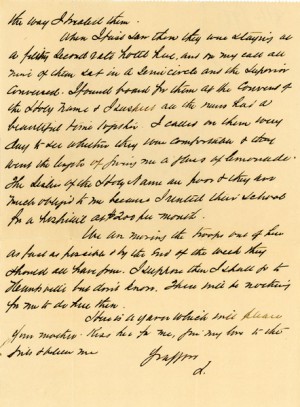I recently finished processing the Robert M. O'Reilly papers (MC 34) which document a good portion of O'Reilly's career as a surgeon for the U.S. Army.
O'Reilly's appointment as surgeon general of the army, a position he held from 1902 until his retirement in 1909, was the last in a long line of assignments that came during his almost 50 years of service. O'Reilly certainly did not experience many dull moments during his career as it coincided with several national and international wars and conflicts.
O'Reilly's career began in 1862 when he interrupted his medical studies at the University of Pennsylvania to enlist as a medical cadet during the Civil War. A good deal of correspondence in the collection is O'Reilly's letters to his mother that he wrote while stationed in Chattanooga, Tennessee.
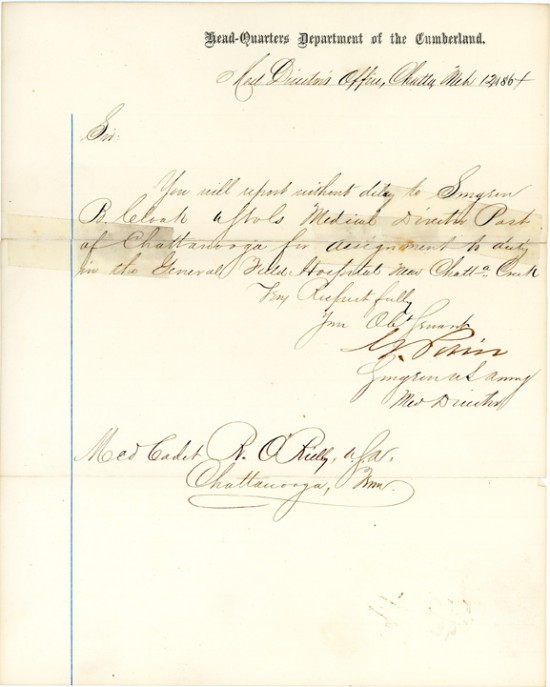
Order for O'Reilly to report to the General Field Hospital near Chattanooga Creek, Chattanooga, Tennessee, March 12, 1864
In 1867, O'Reilly was sent to several army posts in the southwest and was then stationed in Wyoming Territory ending up at Fort Laramie, Wyoming. While there, he was involved in clashes between the U.S. military and the Sioux Nation in 1874 and 1880.
For a time, O'Reilly was stationed at Red Cloud Agency, one of the first reservations established by the U.S. government, located in the northwestern corner of present-day Nebraska. This agency served as one of the centers of activity during the Sioux Wars of 1876-77.
The government assigned troops to Red Cloud Agency in March 1874 after the killing of an agency clerk. The military encampment was named Camp Robinson (Fort Robinson). One of the letters from O'Reilly to his mother discusses the troop's arrival to the camp.
In the letter, O'Reilly writes
The Indians looked pretty blue when we arrived and well they might. A command of over 600 cavalry men with 40 wagons takes up a tremendous length of road when on the march...
During the Spanish- American War, O'Reilly served as chief surgeon of the First Independent Division, the 4th Army Corps, and later chief surgeon on the staff of Major General James F. Wade in Havana.
One of the reasons Spanish troops stationed in Cuba were at a disadvantage during the war was that they were suffering severely from yellow fever. In a letter O'Reilly wrote to his sister Mary while he was stationed in Florida, he notes the concern over the yellow fever outbreak and discusses the movement of troops in the area, as well as how he had been treating members of women's religious orders.
O'Reilly writes:
There hasn't been any fever- yellow fever I mean- in Tampa. There is or was a good deal of typhoid as this is pretty ?? to be in camps of green troops.
My associations since the General and staff went to Huntsville has been largely sick holy people. On Saturday I sent seven Sisters of Charity from New Orleans off on a ship to Santiago...They are yellow fever nurses.
He continues on the second page:
We are moving the troops out of here as fast as possible and by the end of week they should all have gone. I suppose then I shall go to Huntsville but I don't know.
O'Reilly's letter also seems to indicate that his son, Philip, who he refers to as "Jack" was also involved in the war. Philip, a cadet in the U.S. Navy, died in 1901 at age 22. On page one, he notes:
In that now the blockade is over Jack's ship is ordered back to League Island, so no doubt you will see him soon...
The finding aid for the Robert M. O'Reilly papers is now available online.


